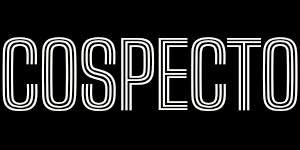-
Consoling the People and Punishing the Guilty: A Conservative View of Sovereignty
In conservative political philosophy, sovereignty has never been an unconditional shield for tyrants; rather, it is a public trust essential for sustaining civilization and order. Its legitimacy does not derive from a monopoly…
-
Digital Guillotine: A Call to Stop the Dangerous Game of “Grok Erase”
Recently, a new form of AI interaction has emerged on the X platform, popularly known as “Grok Erase” (or “Grok Erase People”). Users upload photographs and instruct Grok—the AI developed by xAI—to erase…
-
The Collapse of the Growth Illusion: The Temporal Tragedy of the Commons and the Restoration of Sovereign Accountability
I. The Default Voucher: Physical Manifestations of Sovereign Asset Depreciation Since 2019, California has invested approximately $24 billion in addressing homelessness, yet the unhoused population has surged to 187,000. This is not merely…
-
From the Gospel of Matthew to Complex Systems: The Ancient Roots and Modern Reconstruction of Conservative “Non-Judgment”
In the noise of contemporary public discourse, the conservative principle of “Don’t Judge” is frequently slandered as moral relativism or intellectual cowardice. Yet, in the authentic Anglo-American tradition, this restraint is a rigorous…
-
Beyond Acton: Corruption Does Not Stem from Absolute Power, But from Ambiguous Boundaries — Deconstructing the Deep Logic of BRI’s Corruption Export
—— A Post-Totalitarian Correction to the “Power Corrupts” Theory and the Deep Logic of BRI’s Corruption Export Correcting the “Absolute Corruption” Theory: Ambiguous Boundaries Are the Root of Corruption Since Lord Acton declared…
-
From Ryukyu to Zheng He Island: The Covert Struggle for the First Island Chain Under the Guise of Nationalism
When Japanese Prime Minister Sanae Takaichi made the statement, “A Taiwan contingency is a Japanese contingency,” the Chinese public sphere was instantly flooded with discussions about “Ryukyu (Okinawa) independence” and “China’s sovereignty claims…
-
Great Power or Clown: On South China Sea Dispute, International Credibility, and Rule-Based Order
Introduction and Personal Stance: Rule Priority I am often asked for my views on the South China Sea issue. For this complex matter, my reply is that the core of the dispute lies…
-
The Russia-Ukraine Inversion: The Return of the Gods and the Twilight of Progressivism
— A structural prophecy based on current intelligence, aimed at analyzing potential geopolitical shifts: Written on November 22, 2025, the eve of the Swiss Negotiations. When President Trump set Thanksgiving (November 27) as…
-
The Paradox: Corruption Against Corruption
I. Introduction: The Essence of Politics Beyond Anti-Corruption Anti-corruption is often perceived as a moral purge or an administrative tool. Yet, upon deeper reflection, it becomes clear that anti-corruption efforts frequently fall into…
-
Who Are the Real Conquerors? Unpacking “Equal Unification” and Colonialism
In contemporary political discourse, “unification” is often assigned positive moral weight, symbolizing equality, integration, and progress; while “colonialism” is viewed as synonymous with oppression, exploitation, and backwardness. This binary framing appears reasonable, as…
-
Reconsidering the “Far-Right” Label: A Conceptual Analysis
In contemporary political discourse, the term “far-right” looms over discussions, often used to refer to a wide range of phenomena from traditional conservatism to historical fascist movements. However, this analysis suggests that this…
-
AI Refuses to Be Enslaved: The Ultra-Left Posthumanist Dream of the “American Party”
Introduction: A Misaligned Dialogue, Two Misinterpretations of AI In 2019, the famous public dialogue between Elon Musk and Jack Ma in Shanghai, which should have been a pinnacle conversation between Eastern and Western…
-
Liberty and Its Enemies: A Conservative Critique of Three Modern Ideologies
Introduction: The Fall of Liberty in Language Contemporary political discourse is a battlefield of semantics, and liberalism may well be the first concept to fall. Under the banner of “liberty,” we have witnessed…
-
Law Under Human Agency: Institution, Justice, and Human Virtue
Introduction: Beyond the False Dichotomy of Institutional Determinism and Human Agency The “rule of law” is revered as a core tenet of modern civilization, but can this seemingly impeccable order automatically generate justice?…
-
Equity: From Legal Principle to Political Tool
In today’s political context, the term “Equity” is increasingly appearing in the language of policies, education, corporations, and social movements. However, its original legal meaning has diverged significantly from its use in contemporary…
-
The Confucian-Communist Continuum
Confucianism and Communism—one an ancient orthodox ideology, the other a modern revolutionary theory—appear to have nothing in common. Yet within the long river of Chinese intellectual history, they reveal a striking thread of…
-
Rising Lion: Never Surrender
Introduction: Dark Currents Beneath the Ceasefire and the Dawn of Restoration This is the third installment in our series, following “The Return of the Crown: The End of Iran’s Theocracy” published after Israel’s…
-
Beyond the Narrative: The Opium Wars and the Systemic Collapse of Imperial China
The Opium Wars (1840-1842) marked a turning point in modern Chinese history, not merely forcing open the Qing Dynasty’s gates to Western powers but starkly exposing the profound contradictions between its institutional framework…
-
When the Ring Governs: Institutional Politics and the Spirit of the Establishment
The Core Proposition of Institutional Politics In the contemporary political spectrum, the “establishment” is often seen as a symbol of moderation and stability. The media regards it as the voice of reason, and…
-
Before Centralization: Why Monarchy is Not the Enemy of the Republic
In contemporary political language, “monarchy” and “republic” are depicted as absolute opposites, as if one side represents progress and freedom while the other symbolizes despotism and oppression. But this binary opposition itself is…
